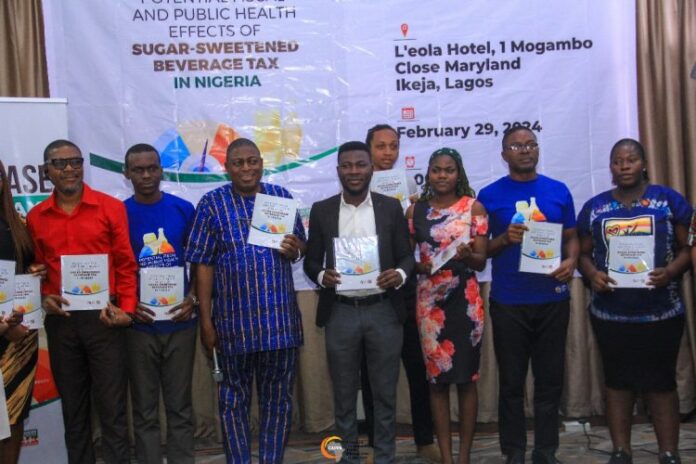The Corporate Accountability and Public Participation Africa (CAPPA) has demanded an increase in the Sugar-Sweetened Beverage (SSB) Tax from #10 to #130 to protect the health of Nigerians.
This demand is part of the policy recommendation in CAPPA’s latest report titled ‘Potential Fiscal and Public Health Effects of Sugar-Sweetened Beverage Tax in Nigeria’.
The report also recommended that policymakers should invest in targeted promotion campaigns to educate the population about the adverse health effects of excessive SSB intake.
While speaking at the public presentation of the report in Lagos, Akinbode Olufemi, the Executive Director of CAPPA, explained that the demand for an increase in the price of SSB tax is because the current #10 per litre tax has not been reviewed to align with the level of inflation in the country.
Akinbode explained that “going by the current inflation rate, the 10Naira per litre imposed on SSBs in 2021 is today possibly worth less than 4kobo because it was a fixed tax, not adjustable to inflation. In essence, the SSB tax needs to be increased significantly in the 2024 Fiscal Act, with a framework that is adjustable to inflation as we also begin the conversation about earmarking the tax or a sizeable portion of it for public health.”
While stressing that an increase in SSB tax will help protect the health of citizens, Akinbode said every Nigerian needs to understand that the demand is for the public good.
Speaking about the report, Fidelis Obaniyi, Research Associate, Centre for the Study of Economics and Africa (CSEA), explained that SSB tax is not a witch hunt but targeted at beverages that are high in sugar content such as soda, energy drinks, and sweetened fruit drinks.
Obaniyi also added that the purpose of the tax is to correct for market failure; trigger behavioural change – public awareness of negative effects of SSB consumption; increase fiscal revenue; and reduction of health burden.
He explained that the tax increase would help to reduce the consumption of sugary beverages, which, in turn, could improve public health by reducing intake and preventing health issues like obesity and diabetes.
Beyond the reduction in consumption, Obaniyi said the increase in SSB tax will also have positive fiscal and health impacts.
“In addition to promoting healthier choices, SSB taxes can generate government revenue.
“The primary purpose of implementing an SSB tax is to reduce the consumption of these sugary beverages and address public health concerns related to obesity, diabetes, and other health issues associated with excessive sugar intake,” he added.
Abayomi Sarumi, Program Officer at CAPPA explained that the organization is working with partners to monitor the industry to sustain and advocate for an increase of SSB tax towards a minimum of 20% of the final retail price.
Opeyemi Ibitoye, SSB Project Coordinator at CAPPA who highlighted the health impacts of the SSB tax explained that it is important to prioritize our health as Nigerians and support the SSB tax campaign.









